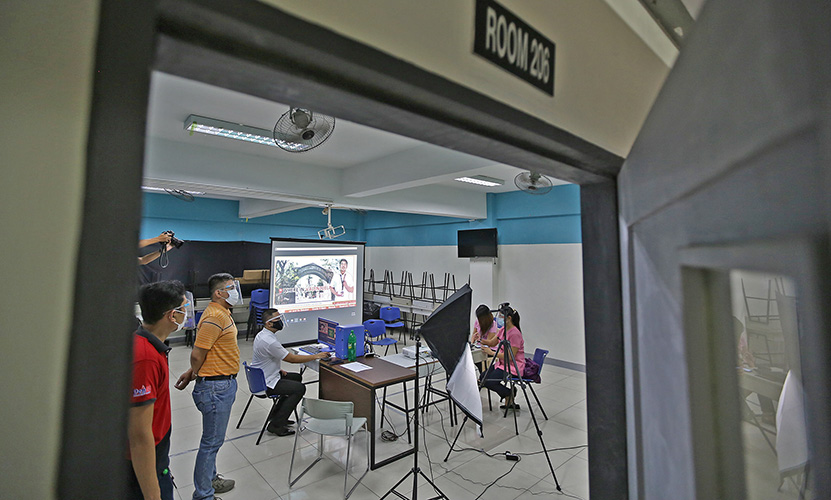Amid the observance of International Literacy Day today, September 8, Senator Win Gatchalian pressed the need to achieve zero illiteracy nationwide.
- Senate Bill No. 2348 or the National Literacy Council Act seeks the formulation of a three-year roadmap on the eradication of illiteracy;
- Senate Bill No. 2355 seeks to establish a national learning intervention program to be known as the Academic Recovery and Accessible Learning (ARAL) Program Act;
- The Chairman of the Senate Committee on Basic Education, Arts and Culture emphasized that prior to the pandemic, millions of Filipinos were already struggling to achieve both basic and functional literacy;
- According to the results of the 2019 Functional Literacy, Education and Mass Media Survey (FLEMMS), six out of 100 Filipinos aged five years old and above have not achieved basic literacy.

Gatchalian recently filed two measures that will help accelerate the universalization of literacy and address learning losses resulting from school closures.
Senate Bill No. 2348 or the National Literacy Council Act seeks the formulation of a three-year roadmap on the eradication of illiteracy. The bill also aims to mobilize Local School Boards as de facto local literacy councils and align with the implementation of the Alternative Learning System (ALS), which was institutionalized through Republic Act No. 11510.
Senate Bill No. 2355, on the other hand, seeks to establish a national learning intervention program to be known as the Academic Recovery and Accessible Learning (ARAL) Program Act, which will include well-systematized tutorial sessions using various delivery modes —face-to-face, online, and blended learning.
The proposed ARAL program seeks to prioritize Reading to develop learners’ critical and analytical thinking skills. It also aims to cover the most essential learning competencies on Language and Mathematics for Grades 1 to 10, and Science for Grades 3 to 10. For Kindergarten learners, the ARAL program will focus on strengthening literacy and numeracy.
“Sa pagbangaon ng sektor ng edukasyon mula sa pinsalang dulot ng pandemya, ang tuluyang pagsugpo sa illiteracy ay isa sa mga dapat nating tutukan. Dapat nating tiyakin na ang bawat mamamayan ay may sapat na kakayahan upang makilahok sa lipunan at makamit ang mas magandang kinabukasan,” said Gatchalian.
The Chairman of the Senate Committee on Basic Education, Arts and Culture emphasized that prior to the pandemic, millions of Filipinos were already struggling to achieve both basic and functional literacy—a problem that COVID-19 could exacerbate because of school closures and the disruption of other education programs.
According to the results of the 2019 Functional Literacy, Education and Mass Media Survey (FLEMMS), six out of 100 Filipinos aged five years old and above have not achieved basic literacy. This means 6 million Filipinos cannot read or write with understanding a simple message.
The same report pointed out that 8 percent of Filipinos aged 10 to 64 years old were functionally illiterate. This is equivalent to 6.7 million Filipinos in this age group that lack the skills to participate fully and efficiently in daily activities, which require a reasonable capability of communicating through a written language.


